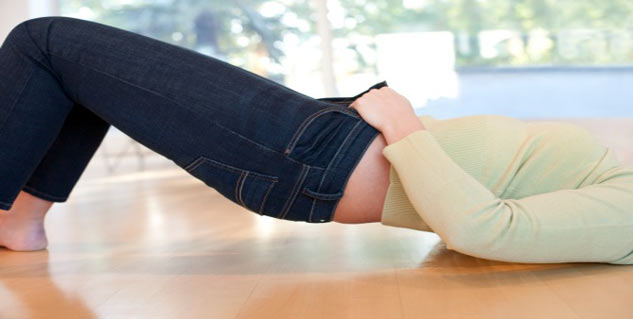Fat Facts and Weight Reduction
The painful fact is that, when one loses weight, the number of fat cells never decreases. Only the amount of fat stored in each of these cells is reduced. These hungry cells will be waiting for fat to come in so that they can store more and more fat.
On the other hand, when one gains weight, the number of fat cells will increase. The reason being, each fat cell can store only a limited amount of fat and when more is coming in, our body will generate new fat cells to accommodate the new arrivals.
If you are in a profession where you will be sitting all the time like working for medical billing service provider or software developer, you should digest the following facts:
Burning of Calories
When a person thinks about burning of calories, he should keep in mind that a large percentage of calorie consumption is for the basal metabolism, the basic life functions like your heart beating, breathing, thinking and keeping the body at the required 98.4 deg. C irrespective of the external temperature. This amounts to approximately 60% of the calorie spending
As a rule, basal metabolism consumes about 22 calories for every kilogram of a woman抯 body weight and 24 calories per kg for men. A woman who weighs 60Kg, for example, expends 1,320 calories just to run her body. That抯 without lifting a finger or walking an inch. A 70-Kg man would burn 1,700 calories. It may look unbelievable, but that抯 the way it is.
If that woman sat in a chair all day and ate no more nor less than 1,320 calories, she would neither gain nor lose weight. On 1,800 calories, she抎 gain weight; on 1,200 calories, she抎 lose. However, in any case, she抎 be bored.
The heavier a person is, the greater the need for calories. A 100 kg woman, who might be very overweight, would require 2,200 calories for basal metabolism alone. (A man of the same weight would need 2,400 calories.) This means that weight loss should be easier for a heavier person: just cut back to 1,500 calories and lose a half-a-kg/week. Add a little activity, say a half-hour slow walk of 3 kmph, and the same woman can eat 1,600 calories a day and still lose that half-a-kg a week.
Now, a person who is overweight probably eats far in excess of daily needs. Cutting back to 1,500 to 1,600 calories may be easier to say than do, and that half-hour walk would be a challenge. But these are goals worth aiming for.
Speeding up or slowing down your BMR
The other important fact is that muscle cells are eight times more metabolically active than fat cells. Hence, greater the proportion of your total body weight that is represented by muscles, the higher your BMR (Basal Metabolic Rate).
Hence more muscular people require more calories to run their bodies. If you take the equation from above, a muscular person can eat more without gaining weight or lose the same weight with lesser reduction in the intake.
The age of the person also plays an important role in the BMR. As we age, our energy needs decrease. On average, it drops 2 percent per decade. Remember, we lose muscle mass as we age. That抯 one reason why older people need fewer calories. It抯 also why, if they continue to eat the same amount they always have, people tend to get heavier as they grow older. This is compounded if they also cut back on activity, either because of ill health or a misguided notion that their active days are over.
Be more active
Now-a-days there are number of diets, drugs, tricks and treatments available in the market which claim to reduce your weight, either by reducing your appetite or increasing your metabolism or spending of calories without activity. It is better we don抰 argue whether they work or not, whether they are good or hazardous to health or not , but there is a perfectly natural, perfectly healthy way to speed up your metabolism. It抯 by being more active.
Exercise boosts your BMR and keeps it up for as long as 12 hours after you stop sweating.
An hour-long workout at the gym will rev up your BMR for the rest of the day or longer, and all the while you抣l be burning calories at a faster rate, though you are in a profession like medical transcription service, sitting and working all the day.
Don抰 forget, dieting reduces your BMR!!!! It is true and scientifically proven! The fact is, your body has fairly primitive responses. When you eat less, it thinks the reduced caloric intake as a sign of famine. So, it slows down the BMR to decrease energy needs. This is the scientific explanation behind weight?loss plateaus and the set point.
-
Everything You Need to Know About Low Carb Diets
A low-carbohydrate or low-carb diet is a dietary program that restrict
-
Losing Weight Without The Stress
Weight loss can be elusive. We typicall
-
Weight Loss Goals - Weight Loss Secrets For Beginners
Weight loss for beginners is not a complicated process but these goals
-
What exactly are Good quality Methods to Lose Weight?
There are lots of fat loss strategies that you could try to lose weigh
-
Theyre Wide Theyre Here Get Used To It
Americas Obesity EpidemicAs the numbers of overweight Americans contin
-
Diversify Your Diet to Help Against Type-2 Diabetes
Between work obligations, social plans and family demands, it i
- DON'T MISS
- 4 Tips For Fast Fat Loss Part I
- 20 Ways To Lose Weight
- What Types Of Diets Are Best For Our Bodies
- 9 Ways To Lose Weight Faster
- Effective Ways For You To Lose Unwanted Weight.
- Successful Weight Loss Begins With A Strong Mind
- Are You Currently Attempting To Lose Weight? These Pointers Will Allow You To Succeed!
- Commiting Or Wishing?
- Losing Weight Naturally – Fast Easy Weight Loss With Proper Goals…
- How to Lose 10 Pounds Fast




